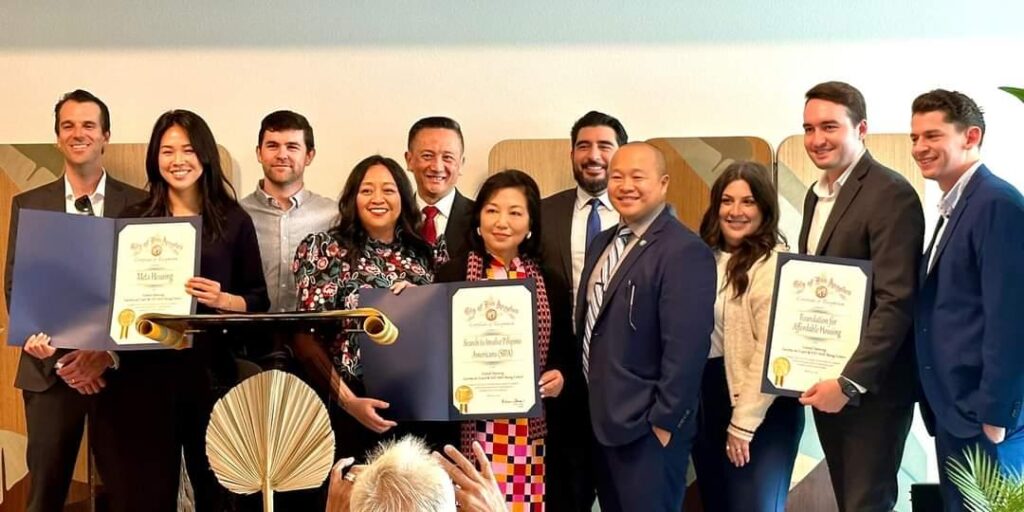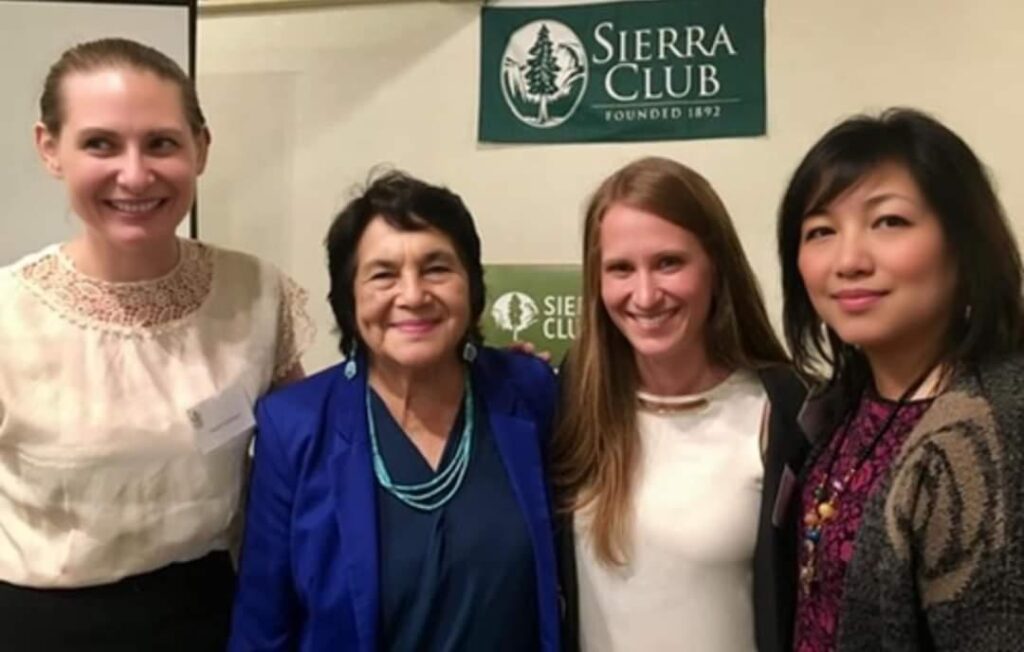“… The good we have in common has been a commitment to respecting the rule of law, including its intent and spirit; to protecting our democratic institutions; to discovering and spreading the truth; to being open to change and tolerant of our differences; to ensuring equal political rights and equal opportunity; to participating in our civic life together, and sacrificing for that life together. These are the essential elements of what we owe one another as Americans. We passionately disagree about all manner of things. But we must share these commitments to each other because they are – or have been – what makes us a people. Although we have often fallen short of achieving them, they are ideals that we have strived to realize. …They have bound us together. They are large and noble obligations. The central moral question of our age is whether we are still committed to them.” – Robert B. Reich, Chancellor’s Professor of Public Policy at UC Berkeley, and Chair of National Governing Board of Common Cause, 2018
AS I write this, it is the fourth Sunday after Easter, described as the Good Shepherd Sunday. Good shepherd refers to a leader that many folks follow. Why? Because of how they care for their flock, without a single one lost or left behind. This pretty much corresponds to Los Angeles Board of Public Works Commissioner Susana Reyes’ style of leadership, inclusive excellence for all in her orbit.
I briefly made a phone call to thank Commissioner Reyes for helping me. It was not a case of injury to my person; it was to my 22-year-old vehicle. In this Sunday’s conversation, she shared her motivating principle: “I try to create a path, not by force of nature, [but] emanating from within, [but] by educating others for change, [avail of] opportunities for action, and sharing stories of others to join in the mission, and serve the public.”
LA City’s responsiveness toward boosting the candy jar of public trust
An entire tree, with its shallow roots, uprooted by strong winds and heavy rains, with its branches fell on the roof of my car on March 2, 2024. It happened shortly after interviewing the commissioner. I took a photo and casually sent it to her with a single word: Help! She located me within minutes, and mobilized LA City’s street services. In 20 minutes, three city trucks came. After another half hour, they had cut up the tree, freed my car from the tree’s embrace, and then the chopped up branches were placed into their trucks for the city’s composting station.
The speed of the city’s response was faster than the towing truck, mobilized by the insurance carrier, which got there two and half hours later. I felt relief, including the storefront small businesses who got worried that the tree might stay there, unnoticed for days, deterring walk-in customers to their salons.
The best part of that incident was getting moral support — Commissioner Reyes stood with me until I could reach the towing truck and with her umbrella, a visible form of shelter from the rains. My daughter and granddaughter shortly arrived in minutes and offered me a ride. LA City’s Commissioner Reyes and my family’s presence boosted my spirits and I felt supported adequately by LA City’s Bureau of Street Services.
If a similar incident happened to you, would that boost your candy jar of public trust?
For years, we had gaping holes in our alley, made worse by the construction trucks of cement supplying the building crew to the additional dwelling unit (ADU). It took 10 months for the crack to become a puddle to a mini wading pool. The cracks in the alley became tripping hazards to toddlers learning to walk with their parents. For several months, I registered a service request through the LA City’s 311 hotline. After three follow-ups, I was about to give up, frustrated. I casually mentioned this issue to Commissioner Reyes when I saw her.
A month after the Christmas holidays, LA City’s Access services had cemented a portion of the sidewalk and a few feet of the alley abutting it.
Months later, a neighbor’s brand-new truck was stolen. It had been stripped when found by the LAPD. To our neighbors’ surprise, Tree Services King trimmed the overgrown tree branches that kept the street light’s luminosity obstructed.
Neighbors emailed their satisfaction with the alley repair including the now visible streetlights.
These street service improvements were made more visible as women leaders took their places in the boardrooms, including the Board of Public Works. No more wax in the ears of local city officials, from here on. There is a new LA City Hall culture under the leadership of Mayor Karen Bass, councilmembers, and commissioners.
Her style of leadership: Strategic thinking, diversity, collaboration on solutions-oriented programs
Randall Winston, Deputy Mayor of Infrastructure, described Reyes as a sustainability champion. He said, “Across her inspiring career, she has advocated for energy, water, waste, transportation, biodiversity and equity issues in a variety of capacities supporting various City agencies. I respect Reyes’ deep understanding of environmental challenges and her expertise in the mechanisms of local government needed to effectuate change. She is a trusted thought partner, yet remains grounded and accessible to so many others. Environmental advocates, community organizations, city staff, and executive leadership frequently rely on her experience to design new programs that lessen our impact on the planet in inclusive and equitable ways.”
Reyes does not shy away from solving issues, from one business owner, to an entire street, to policymaking on a bigger scale, to representing LA City on renewal projects, and new initiatives.
When she started the LA City Hall’s recycling program in 1985, it was an unpopular program. She persisted in championing it in city department offices and received early support from an environmentally aware council member, Ruth Galanter. It is now a common practice throughout LA City to use green containers for composting tree cuttings, blue for cartons and packaging, and black for non-recyclable trash.
Miss Universe 2022 R. Bonney Gabriel described global textile waste as 90 million tons going to the landfill while 100 billion garments are produced by the fashion industry, during a press conference in Little Tokyo, sponsored by APAIT, in October 2023. It is her mission to teach women sewing skills and designing new clothing using used clothing fabric, including plastic containers.
Reyes was part of a new working group of diverting clothing from the landfills. It will use a machine that will sort, and recover threads from used clothing, with several partners, foremost of which is the Homeboy Threads Facility. Norway has invented a sorting machine called TOMRA AUTOSORT that converts used clothing into usable threads. In her post, Reyes said: “Let’s maintain momentum towards implementing a closed loop textile recovery system by the LA2028 Olympics.”

Reyes attended the milestone launch of “Lucena on Court, a 46-unit affordable apartment community for individuals and families earning less than 60% of the median income, with SIPA providing resident services, including the much-awaited HiFi Well-Being Center,” she informed us.
Mayor Karen Bass has expedited the permitting process down to 35 days and has resulted in 16,000 additional, affordable new housing units in the pipeline, which she reported in her State of the City speech in April 2024.
Reyes has represented the Bureau of Public Works at the groundbreaking project of transforming a vacant lot of Haynes Street, “Vacant to Vibrant,” into a trail of oak trees, desert willow redbuds, and opening to the LA River bike path, a 5,000 square foot pocket park.
A few months ago, the California Floral Company’s owner complained of daily construction debris, metal rails, and nails that resulted in flat tires to their customers in Little Tokyo from nearby construction. The owner had contacted City Council District 14, and only the deafening sound of silence after. Few more phone calls and nothing. The construction crew placed blue trash receptacles by the business storefront, inviting graffiti and deterring more foot traffic, which affected the owner’s revenue.
The issue was resolved through Commissioner Reyes requesting collaboration from city departments: one that oversees construction, placement of trash bins, graffiti removal and after, a satisfied business owner that did not have to close their business.
How many more can be helped if we know of LA City’s role in these success stories?
HerStories: Inclusive excellence as transformative leaders
Responsive. Problem Solver. Solutions-Oriented. Makes a Difference. These are some of the descriptors that I learned about Commissioner Susana Reyes, one of the five commissioners of the Bureau of Public Works in LA City Hall, along with: Aura Garcia, Teresa Villegas, Mike Davis and Vahid Khorsand. Descriptors are derived from actual observations and concrete experiences.
I attended a panel discussion of HerStories: Women Leading at Work, sponsored by the Los Angeles Board of Public Works on March 27 at the Tom Bradley Tower, 26th floor of LA City Hall. Panelists included: Cora Oriel, President of the Asian Journal; Naomi Rodriguez, Founding Partner of 3 Gens Consulting; Hydee Feldstein Soto, LA City Attorney; and Emada Tingirides, LAPD Deputy Chief. About 150 attended and lingered to connect afterward.
I learned from them a concept of inclusive excellence – that it takes many given perspectives to reach common ground, a forward-moving solution, righteous and reasonable responses, consistent presence in important events, empowering those participating at the decision-making table, regardless of title or hierarchy. It included a disciplined work ethic, consistently waking up early to review their daily work agenda, reading minutes of decisions arrived at to assure that the strategic mission is accomplished, day-to-day. It included “bringing one’s whole self to work,” not fragmented and hidden, a new LA City culture.
Commissioner Reyes quietly made her presence known by helping to organize, connected with the registration desk staffers, invited one of the panelists, welcomed the attendees, and introduced some panelists. They shared their personal stories of transformation, transcending discrimination, struggling to find work-family balance, being a calming presence in representing LAPD in the community, in the context of rallies advocating for reasonable police action, and consciously choosing to be the change that we desire.
Anselmo Collins, Senior Assistant General Manager of the Department of Water and Power had this to say about Commissioner Reyes: “I have had the pleasure of working with Susana Reyes several times in our careers, first as co-workers and then later, when she was appointed to the Board of Water and Power Commissioners and now as Bureau of Public Works Commissioner. Reyes is a great strategic thinker, collaborator and leader. She has always supported staff and is a strong advocate for all Angelenos. She is a great example of servant leadership and committed to expanding diversity, equity and inclusion in the City of LA.”
“When Commissioner Reyes [then of DWP] was assigned to the Native American tribes in Owens Valley, she immediately went to meet with the tribal leadership to determine their issues and how to collaborate with them. By doing that, she was prioritizing their well-being and growth,” Collins said.
Reyes described the first two meetings set up by LADWP as tense. The tribal chief was silent, “mirroring the radio silence suffered by the tribe until LADWP decided, with the LA City Attorney, to resolve the lingering core issues in person.”
She continued, “at the third and subsequent meetings, the discussion became more productive. By the time I left to become BPW Commissioner, I passed on the baton to Cynthia Ruiz, DWP Commissioner, who continued establishing the relationship and helped with crafting solutions.”
A bit of context here: LA City built an aqueduct in 1970 diverting water to the city, resulting in lowered water levels in Mono and Owens Lake, and an agricultural toll in Owens Valley. It became a dry alkali flat and in 1998, EPA mandated that DWP take steps to reduce the dust pollution from the dry Owens Lake. University of the Pacific’s website of Jennifer Little’s exhibition, “Drought, Dust, Flood: Owens Lake and the Los Angeles Aqueduct” described the “dust mitigation program in 2000, installing 45 square miles of dust mitigation zones, including gravel cover, managed vegetation and buried drip tubing and irrigation bubblers costing over $2 billion. From the great melt of the Sierra’s in 2023, Owens Lake got flooded and became a full lake again for the first time in a century.”
Fr. Ernesto Cordero described transformative leadership feature as: “a conscious shift from seeing oneself as privileged from a clerical, educational or experiential point of view – towards the viewpoint of a stranger, opens up the leader… the liberating shift in perspective allows the pastoral leader to engage in a meaningful dialogue with “the other.” This shift veers away from the position of privilege and a tendency to presume a supreme understanding of faith [knowledge] over others; instead I believe it is an appeal to be humble, curious and attentive in the presence of fellow strangers.”
Reyes’ daughter, Freya Estreller, described her mom as “an incredible woman, and I am incredibly proud to be her daughter. She has dedicated her life to public service leadership in the City of LA for over 32 years. She tirelessly fought for the rights and well-being of our city’s residents, always putting their needs above her own. Her dedication doesn’t stop there.”
Estreller added, “in addition to her demanding career, she managed to raise four daughters who have all grown up to be successful and independent women. She instilled in us the values of integrity, compassion and perseverance. She is also the beloved Nannah of four grandchildren, making time to babysit and spoil them any chance she gets. Her role model was my grandfather (her dad, Virgilio) who was the Chief Legal Counsel of the Civil Aeronautics Administration at Manila International Airport, a model of honesty and transparency in government.” Estreller is a successful founder/entrepreneur of CoolHaus, a specialty ice cream bar that has become a multimillion business. She credits her mom for lessons she learned as an LGBTQ+ daughter, spouse, parent, and is quite lucky to have her mom as her mentor, guide and cheerleader.

Reyes is a graduate of UCLA Anderson School of Management’s Civic Enterprise Leadership and Management Program and St. Paul’s University with a B.A. in Communications, Magna Cum Laude. She completed training programs on volunteerism and in leading a governing board of directors with the Sierra Club. She is a wholesome person with all the hallmark features of awareness of self, ethical decision-making and integrity, critical thinking and communication skills, and active citizenship engaged with family, environmental organizations, community, and civic responsibilities.
She carries her baon (inner provisions), fully informed and with capacities to fully engage positively, without the bitbit (burdens we bring with us) tainting the landscape of perspectives at the table. Baon and bitbit are Tagalog terms described by Fr. Ernesto Cordero in his successfully defended doctoral dissertation, “A Stranger Amidst The Strange: Pastoral Leadership in Disorienting Times” at Fordham University in 2022.
* * *
The opinions, beliefs and viewpoints expressed by the author do not necessarily reflect the opinions, beliefs and viewpoints of the Asian Journal, its management, editorial board and staff.
* * *
Prosy Abarquez-Delacruz, J.D. writes a weekly column for Asian Journal, called “Rhizomes.” She has been writing for AJ Press for 12 years. She also contributes to Balikbayan Magazine. Her training and experiences are in science, food technology, law and community volunteerism for 4 decades. She holds a B.S. degree from the University of the Philippines, a law degree from Whittier College School of Law in California and a certificate on 21st Century Leadership from Harvard’s Kennedy School of Government. She has been a participant in NVM Writing Workshops taught by Prof. Peter Bacho for 4 years and Prof. Russell Leong. She has travelled to France, Holland, Belgium, Spain, Portugal, Japan, Costa Rica, Mexico and over 22 national parks in the U.S., in her pursuit of love for nature and the arts.

